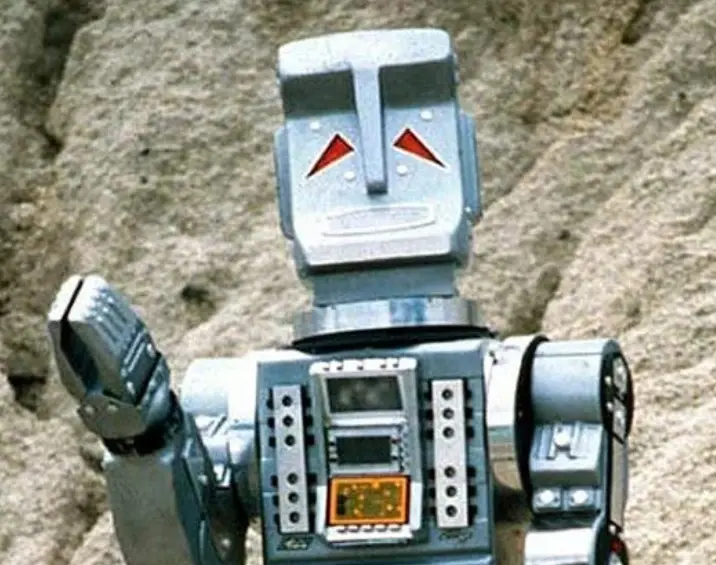Okay, so you know that iMac (mid-2011 model) I rescued from a thrift store for fifteen dollars? After some struggling and a little panic about the screen not working (it was just a cable that disconnected, no biggie), I got it back up on its feet. Hooray for me!
There’s just one problem, though. What the heck do I do with this thing? I gave some thought to turning it into an emulation station, but I’m not sure that a machine this old would be much good for 21st century console emulation (ie PS2, GameCube). I tried installing Dolphin for testing purposes, only to be told that the OS (El Capitan) was too old and that I’d need to download a legacy version instead; one that’s likely less optimized and slower than the latest ones.
I’ve been doing some research and have discovered that this iMac can run a more modern OS, Catalina, with a patch. Would that newer operating system even be feasible on such an old system, though? Years ago, I bought a netbook that someone foolishly installed Windows 10 on, and it was dreadfully slow. (The previous owners put Windows 10 on a damn netbook. What were they thinking?!)
Also, I’m quickly discovering that Mac OS doesn’t work the same way as Windows. When I downloaded and installed the Dolphin software, it just plopped it on the desktop, rather than letting me specify a folder and then creating a desktop shortcut to it. Is there a guide somewhere that would help guide me through the differences? Windows is intuitive for me after using it for a quarter of a century, but Mac OS, not so much. I think I’m going to need a Mac for Dummies book to really feel comfortable using this thing.
Thanks in advance for any help you can offer!
EDIT: This wasn’t mentioned in the original post, but I wanted to clarify that I’ve already put an SSD into this system. It’s the reason I had to open it up in the first place… and then put in the terrible, terrible screen screws. (Ugh, I’m still having flashbacks.)
If you just want to run emulators on it you may want to consider installing linux on it. Considering the fact you only use windows the learning curve shouldn’t be any worse than OSX and you can install a newer version. You could also install a dedicated emulation distro like lakka, but then you can only use it for that, it has no desktop.
Linux has been my go to for dated machines that got to slow for windows along with a ssd upgrade.
Depending on the actual hardware, 2011 vintage is still enough for the computer to run decently.
You might want to bump up the RAM, but it’s young enough that it might still be a decent computer.
I think it’s got 8 gigs in there already… I’ll need to look at the About file to confirm it. I may need more than that? What’s this thing top out at? 16GB, 32GB?
Apple tech specs online says that it’ll support up to 16GB – but sometimes their spec sheets lowball the actual compatibility. At any rate, you can be sure that it’ll accept at least that much. (Source)
And maxing out the RAM is always better for performance, regardless of whether you’re using macOS, Windows or Linux. (This is doubly true with older hardware, such as what you’ve found.) The question isn’t, is more RAM a good idea… it’s, is more RAM worth the cost. And with a 16GB RAM kit for that system going for about $16 on Amazon, I’d personally say go for it. (Double-check that I’ve found the right link for you, of course, just in case.)
Apple tech specs online says that it’ll support up to 16GB – but sometimes their spec sheets lowball the actual compatibility. At any rate, you can be sure that it’ll accept at least that much. (Source)
Expanding on that, the official maximum is whatever was available in 2011 (or perhaps even a year earlier). Once a product is shipped, they don’t go back and test it with newer third party components (unless it’s a Mac Pro).
These days, it should be able to run 32GB - there are larger chips available that are compatible. I’d upgrade it to at least 16GB - you want as many files on disk in RAM cache as possible.
Do some research though - because aside from having the right specs you need to worry about the physical size too. Sometimes the larger capacity chips are also a few millimetres larger and outside of the Mac Pro Apple isn’t known for leaving extra empty air space around internal components. In fact Steve Jobs famously threw an expensive prototype in a fish tank to test someone’s claim that it couldn’t be made any thinner - bubbles came out, and he ripped the designer to shreds for lying.
That story was around the same time as OP’s iMac was designed by the way. Might have been designed by the same engineer… who I’m pretty sure learned a lesson and stopped designing empty space into his products. If you want a future proof Mac, you buy a Mac Pro. Those do have plenty of room for upgrades:

You’ve got two different questions in there, I think. One of them is “what’s so great about mac” and the other is “what to do with an old mac”?
It sounds like you’re likely to be frustrated finding out the answers to the first one on that machine, though for some people a Catalina OS on a form factor or model they really like is sublime. If you’re just trying out the os from the Windows side of things, it’s not as fun because there’s some learning curve stuff that’s just annoying to get through at first. Command-key vs CTRL, but Command-key is the Windows key on some keyboards so -??? stuff like that.
As for the “what to do with it” question, I’d argue the form factor would answer it. for an iMac, I’d think about a music station, maybe find some good visualization programs (there was a milk plugin for VLC I found awhile ago that I liked). A browser / emailer / kbinner is good if you have the keyboard and mouse you like. Or, if you just want to put it on a shelf and look at it’s coolness, a digital photo frame. The last iMac I saw my friends had in their kitchen for music, recipes, youtubes etc.
If none of those interest you, then yeah running Linux is always an option and a darned fine one. Make it the killer Kali seekrit station or whatever :D
You can install a more modern MacOS with OCLP. Not my main machine, but I installed Monterey on a 2011 iMac without SSD and it runs, though it’s slow, but fine for some purposes.
OCLP? Please explain. I can get a flash drive that will install Catalina and other Mac OSes onto the system, but I don’t think those OSes come patched.
The Open Core Legacy Patcher site explains everything:
https://dortania.github.io/OpenCore-Legacy-Patcher/
For support I highly recommend that you join their Discord server: (this link will expire in a few days)
Did it dump a disk image on your desktop? Click it and it’ll open a finder window. Grab the app icon and drop it into your applications folder.
Also I second the commenter who said install Linux on it. You’re going to need to hack it together anyway, may as well get the latest software in return
I’ve got two 27” 2011 iMacs and I still use them for the kids as browsers/media players/old games. The mobile GPU isn’t amazing, but the i7 version I’ve got plays half-life 2-era games decently. Would definitely recommend sticking an SSD in it if you’re going to use it regularly. Just be aware that the spinning drives have a temp sensor on them that won’t be on an SSD but there are some easy workarounds for it. It’s a great machine for learning (a slightly older) version of Mac OS, or you can install Linux or Windows on it.
For $15, might as well just have some fun with it! If you know linux/unix at all you’ll find the terminal very comfortable, and many of us find that once we’re used to osx it’s hard to go back to windows.
Apple’s support site has a few articles that you might find helpful. A good one to start with is “What’s it called on my Mac?” which matches Windows terminology with its comparable Mac version. Another one is “Mac tips for Windows switchers” which outlines the Mac OS way to perform common tasks. But if you poke around, you can find a bunch of interesting stuff to check out.
You also can try to install some minimal Linux distro and run some Pihole, Plex, Jellyfin, homeassistant, etc.
Not a serious answer but your question brings this video to mind, specifically at this time. Jumpscare warning for the timestamped link: it starts right after a loud portion but stepping forward cuts off the start of the next segment. It’s also a bit older so the quality isn’t perfect.
Here is an alternative Piped link(s): https://piped.video/watch?v=GWxC8ezE4Dk
https://piped.video/watch?v=GWxC8ezE4Dk&t=97s
Piped is a privacy-respecting open-source alternative frontend to YouTube.
I’m open-source, check me out at GitHub.
Oh man, I can totally relate to this. Just putting in the screws (Torx! And magnetized to the sides of the system, like I was playing the board game Operation as designed by a sadist!) was a hair-pulling nightmare.
Would that newer operating system even be feasible on such an old system, though?
Not really. Apple is leaning hard into high speed low latency flash memory file storage and modern OS version are just not optimised for the HDD in your iMac. It’ll be a little better if you install an SSD… but compared to a modern Mac it’s still going to be about 10x slower in terms of bandwidth and even worse than that in terms of latency compared to a modern Mac.
The latency is the real killer - when Apple switched form Intel CPUs to Apple Silicon CPUs, a lot of disk benchmark tools started showing “zero” or sometimes even negative values for file access latency, because it was so fast they weren’t even able to get an accurate measurement. Apple has optimised their software to pretty much require that speed.
Your 2011 Mac has a disk controller chipset on the hard drive, which talks to the CPU over a SATA interface that was barely fast enough for a spinning metal hard disk drive. Modern Macs have the disk controller inside the CPU. And PCI connections to flash memory chips right next to the CPU (almost part of the CPU).
You’re better off sticking to older versions of MacOS which had more caches in RAM than the newer versions. Or, you could put Linux on it.
You haven’t wasted your money at only $15. But you also haven’t really got yourself a proper Mac either.
This is a bit bogus. I just retired a 2012 iMac because I needed a new version of macOS to match my other devices. The only thing I ever did to the iMac was replace the original fusion driver with a SATA SSD (Samsung). It ran faster - boot times well under 10 seconds from the Apple chime.
Replace the HDD with an SSD . Update it to the latest macOS that hardware supports and it will be fine for web, email, basic office duty stuff, if you are sticking to Apple. I could also Bootcamp and run four instances of EVE Online with no issues.
There are a bunch of other things you can do with it outside of macOS but it really is getting up there in age.
SSD is already in there, and I’ve edited the original point to reflect this. Used a Y-splitter to get around the fan speed issue, because I’m not buyin’ a forty dollar temperature sensor for a fifteen dollar computer!
It’s amazing how crucial proximity to the CPU is, considering that the speed of electricity through the circuitry is almost instantaneous. It’ll be the closest thing to instantaneous when we switch circuit traffic from electricity to light, as has been rumored.
Okay, so that’s a no vote on Catalina. Was that designed specifically for the new ARM processor? I was under the impression that it was an Intel thing.
Plex media center/server would be a good example of what you can do with it. As people keep saying, you need to drag the app inside of it into the applications folder, the thing showing on your desktop is the image, kind of the exe installer. When you’re done copying the app, drag the thing in your desktop to the trash to ‘eject’ it.
A media center isn’t a bad idea at all. I’ve got no end of things that play video games, but it would be great to have a machine that I can copy all my disc media to, and then watch at my leisure. You have no friggin’ idea how many DVDs I’ve got, but I never watch any of them because boo hoo, switching from my game system without an optical disc player to the one that DOES have an optical disc player, and actually getting up to put the disc into the machine, takes oh-so-much effort. Good lord, the 21st century has made us so lazy as a species.
I feel ya. You may need to switch the hdd to a proper ssd drive with enough capacity, but it’s a good use for an old imac
Catalina runs perfectly on my mid 2009 macbook pro so it will run fine
I appreciate all the advice you guys are giving me!
By the way, I should probably mention that I do have an SSD in this system, along with a SATA Y-splitter to keep the CPU fan from running at full blast all the time. Seems to work so far! I wish I could have secured it with screws rather than a few pieces of Gorilla Tape, but whaddaya gonna do.
Linux probably would be easier for me; I have a little more experience with it than Mac OS. But I feel that it would be a good idea to just learn how a Mac works. I imagine that knowledge would come in handy later. Prior to this, I owned a chunky Power Mac made in 1996, and I can see that the Mac operating system has changed a LOT since that time.









